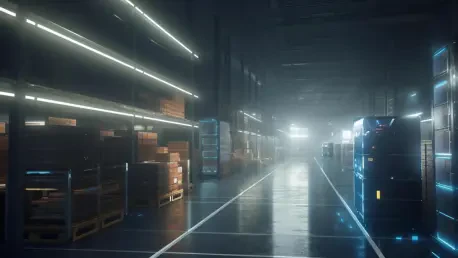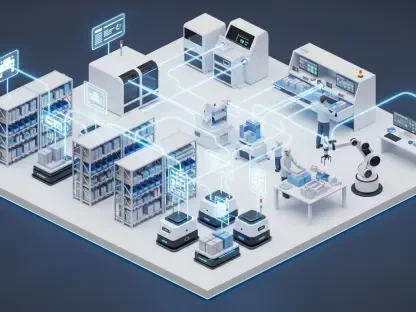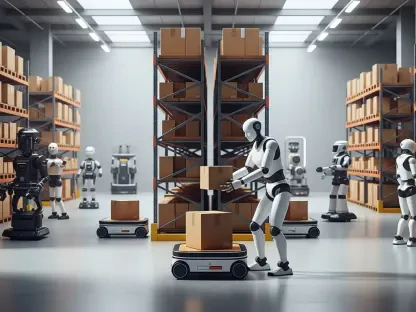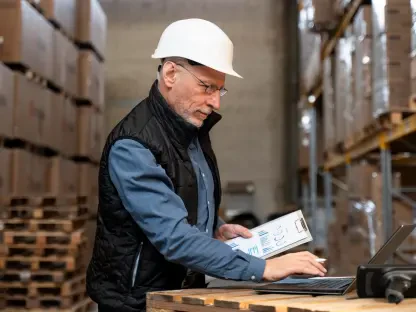In today’s dynamic world of logistics, TGW Logistics stands out as an innovator in system integration, providing comprehensive solutions that cater to the complex needs of businesses worldwide. With decades of experience, Rohit Laila shares insights about TGW’s approach and how they navigate the challenges of automation and integration, ensuring efficiency and adaptability in the fast-paced supply chain landscape.
Can you explain what TGW Logistics means by being an “end-to-end integrator”?
Being an “end-to-end integrator” means taking full responsibility for the changes a company goes through, especially around warehouse automation. TGW starts by viewing the entire warehouse as a cohesive unit, analyzing processes from inbound and quality control to picking, packing, and shipping. This approach allows TGW to leverage data analysis to identify areas where automation can significantly enhance ROI, often focusing on optimizing picking and packing processes for smaller goods.
How does TGW Logistics handle the challenges of warehouse automation?
Warehouse automation involves partnering closely with customers to deliver efficiency, speed, and sustainability. Instead of merely replacing human labor with machines, it’s about strategically integrating technology to enhance various operational facets, like cost control and flexibility. By adapting solutions to each unique scenario, TGW offers tailored automation that suits specific customer needs.
What areas within a warehouse does TGW focus on analyzing for ROI improvement?
TGW thoroughly examines all aspects of warehouse operations to explore potential ROI enhancements through automation. While there’s a keen focus on picking and packing, every facet from inbound handling to shipping is analyzed for efficiencies. By doing so, TGW helps customers maximize their investments and operational efficacy.
Could you give an example of a recent project where TGW provided significant value in system integration?
One notable project involved integrating five distribution centers into one expansive warehouse. TGW was tasked with automating processes within an 8,500 square meter area; however, this segment processed 80% of the order lines. Beyond automation, TGW contributed to managing manual pick and pack areas, thus showcasing the true essence of integration across various elements of the warehouse.
How does TGW cater to different types of customers, like those with in-house design teams versus those needing full integration services?
TGW exhibits flexibility to meet diverse client needs. For customers with adept in-house design teams, TGW acts as a substantial system integrator, offering essential services without taking over full end-to-end processes. For others requiring comprehensive solutions, TGW conducts full integration, addressing all aspects from design and implementation to ongoing support.
What trends have you noticed in legacy automation systems and their progression to state-of-the-art models?
Many businesses are transitioning from legacy systems to newer models, primarily driven by the need to stay cutting-edge without compromising existing strengths. Although legacy systems often operate efficiently, upgrades can yield savings in energy usage and operational costs, much like upgrading an old appliance to a modern, more efficient version.
Can you elaborate on the analogy comparing legacy systems to older appliance models in terms of efficiency?
The analogy likens legacy systems to old appliances that, while still functional, consume more resources than newer models. Upgrading allows businesses to benefit from efficiency gains in energy and resource consumption, positioning them for better ROI and sustainable operations.
How has TGW evolved to suit customer needs over the years, particularly concerning software and hardware?
TGW has transformed from its origins as a small metalworking company to a global leader in logistics integration, embracing both hardware and software innovation. By acquiring specialist software firms and investing heavily in R&D, TGW delivers industry-leading electro-mechanical equipment complemented by robust software solutions.
What role does software play in the success of an integrated system at TGW?
Software is critical to the success of integrated systems. It forms a significant part of the investment but drives most of the system’s effectiveness. Well-managed software provides real-time insights and helps optimize operations over time, ensuring the maximum benefit is derived from the automation process.
Why is change management important in the automation process, and how does TGW handle it?
Change management is crucial because automation isn’t a simple turn-key solution. TGW guides customers through a gradual learning curve, spanning months, to understand the system’s dynamics fully. Using software, TGW facilitates real-time monitoring and adjustments, helping to fine-tune operations for optimal performance.
What are TGW’s key market areas, and how does the company approach each of these sectors?
TGW focuses on Grocery, Fashion/Apparel, Industrial, and Consumer sectors. Each requires specific strategies: Grocery emphasizes automation for labor-intensive environments, while Fashion capitalizes on e-commerce trends and omnichannel logistics. TGW crafts solutions that are scalable and adaptable across industries.
How is TGW addressing the labor shortage in sectors like Grocery, and what role does automation play in it?
With increasing labor shortages, particularly in demanding environments like Grocery, TGW provides automation solutions that minimize reliance on human labor, enabling operations without extensive night shifts or freezer work. This bolsters the attractiveness of automation projects in these sectors.
How has the Fashion sector changed in recent years due to factors like COVID-19, and how is TGW adapting to these changes?
The Fashion sector experienced rapid shifts with COVID-19 accelerating e-commerce growth. Now, as brick-and-mortar stores regain popularity, TGW adapts with flexible, scalable logistics solutions to manage omnichannel demands, allowing customers to handle diverse order types efficiently.
What opportunities does TGW see with fashion brands strong in marketing but weaker in logistics?
TGW recognizes that fashion brands with formidable marketing prowess but lacking logistical efficiency present opportunities for advanced integration solutions. By supporting these brands, TGW positions itself as a vital partner in enhancing their logistics operations, leveraging automation to bridge the gap.
What distinguishes TGW’s approach with its tagline “It’s Possible,” and how does TGW ensure operational flexibility for its customers?
“It’s Possible” underscores TGW’s commitment to making complex logistics feasible with robust equipment backed by proprietary software. Operational flexibility is ensured by designing adaptable solutions that cater to varied customer demands, fostering an environment where tailored logistics solutions thrive.
How does TGW’s management as a Foundation influence its business decisions and customer relationships?
Operating as a Foundation means TGW prioritizes long-term goals over short-term gains. Decisions focus on sustainable growth benefiting employees, customers, and communities, forging strong relationships grounded in mutual success and creating a stable basis for future logistics strategy development.
Can you discuss the importance of partnerships in TGW’s projects and any learning experiences the company has gained from customers?
Partnerships are integral to TGW’s success, enabling mutual learning and growth. Collaborating with customers provides TGW with insights into evolving industry needs, allowing them to innovate accordingly while customers benefit from TGW’s expertise, fostering a win-win dynamic.
Do you have any advice for our readers?
In the realm of logistics, adaptability and open-mindedness are key. Embrace technology and seek strategic partnerships that can help navigate challenges and maximize opportunities. As the industry evolves, pioneering solutions that balance efficiency with sustainability will be paramount to long-term success.









